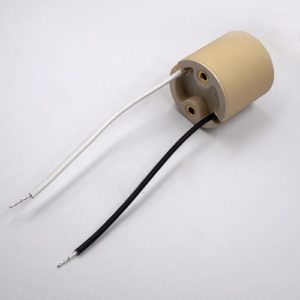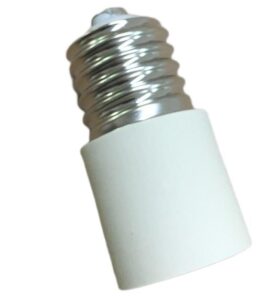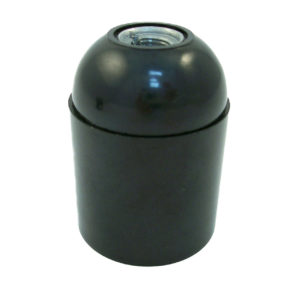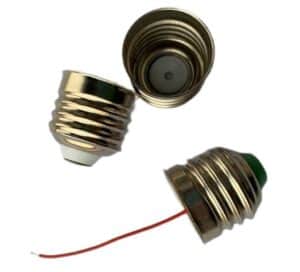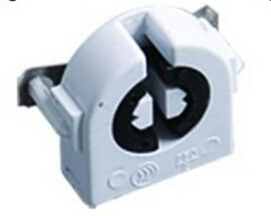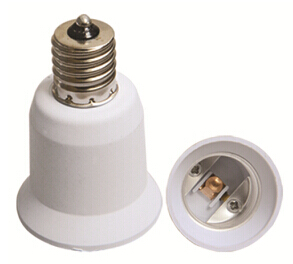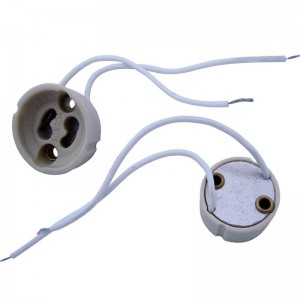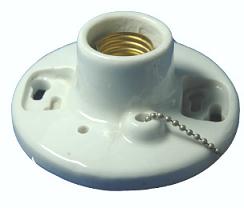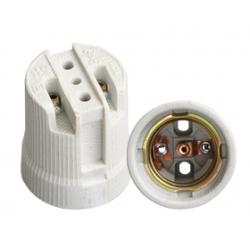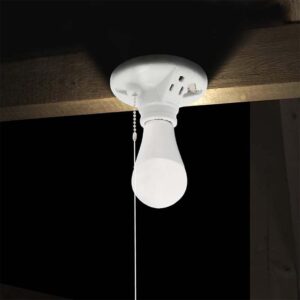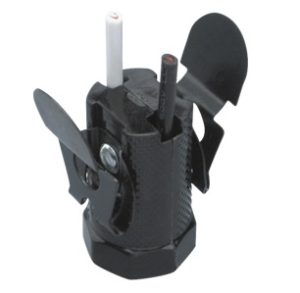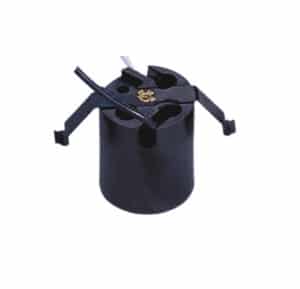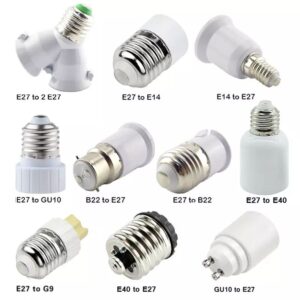When it comes to picking the right socket for your lighting, the material the socket is made from is important to make sure it’s safe, strong, and works well. One popular, reliable choice is a porcelain light socket. This is especially true in places where you have heat, moisture, or a lot of use. Even though a lot of sockets are made from plastic or metal, porcelain has some special advantages that make it a great choice for your home or business.
Porcelain sockets are great because they can handle a lot of heat, they’re really strong, and they provide great insulation for electricity.
In this guide, we’ll talk about the different benefits of using porcelain sockets, including how safe they are, how long they last, and the kind of places where they work great.
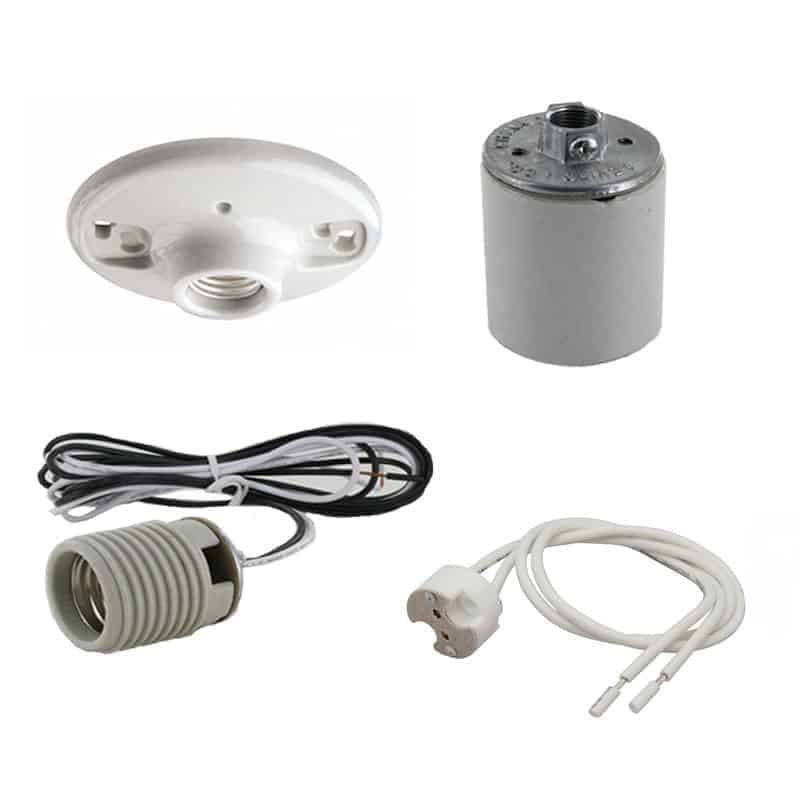
Superior Heat Resistance
One of the most significant advantages of porcelain sockets is their excellent heat resistance. When light bulbs—especially high-wattage ones—are in use, they generate a considerable amount of heat. Plastic sockets may melt or deform under such conditions, and metal sockets can conduct heat, leading to overheating of the fixture. Porcelain, on the other hand, can withstand high temperatures without losing its structural integrity.
Porcelain is a ceramic material that has an extremely high melting point, making it capable of handling the heat generated by incandescent, halogen, or even LED bulbs during prolonged use. This is especially important in enclosed fixtures, industrial environments, or high-demand applications where bulbs run for extended periods. In these cases, a porcelain socket can ensure that the heat does not compromise the safety or performance of the fixture.
By preventing the risks associated with overheating, porcelain sockets help avoid electrical fires or damage to both the bulb and the fixture. If you’re dealing with high-wattage bulbs or extended usage, porcelain sockets are the best choice for managing heat.
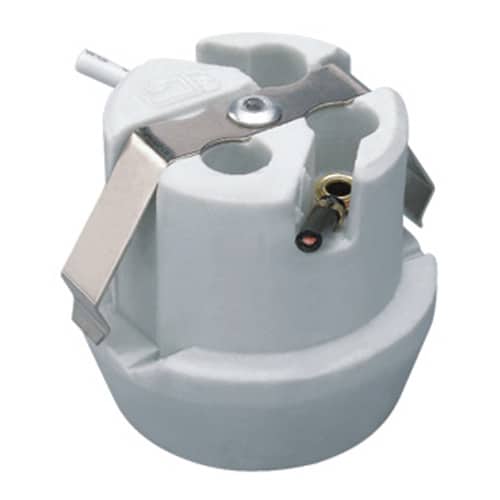
Excellent Electrical Insulation
Another key benefit of porcelain lamp holders is their superior electrical insulation properties. Since porcelain is a non-conductive material, it naturally prevents electricity from flowing outside of the socket and the designated electrical path. This property ensures that electricity is safely contained within the bulb and wiring, minimizing the risk of electric shock or short circuits.
Plastic lamp holders also provide some degree of insulation, but they are prone to wear and tear over time, especially under high heat. Porcelain, in contrast, maintains its insulating properties over many years of use, even in high-temperature environments. This makes it a much safer option, particularly in fixtures where high-wattage bulbs are used, or in areas where moisture might compromise other materials.
The excellent insulation provided by porcelain lamp sockets not only keeps the electrical components isolated but also reduces the risk of overheating or fire hazards caused by electrical issues. This makes porcelain the preferred material for high-intensity lighting, outdoor fixtures, and moisture-prone environments like bathrooms or kitchens.
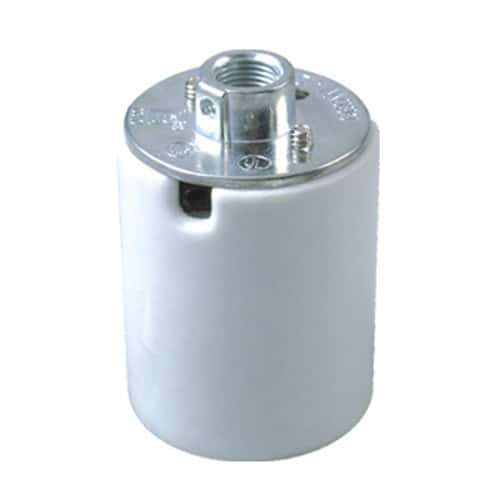
Durability and Longevity
Porcelain is known for its durability, which is another significant benefit for long-term lighting solutions. Unlike plastic, which can become brittle, crack, or degrade over time due to heat or environmental factors, porcelain remains strong and stable. Its high resistance to wear and tear means that it can handle the physical stress and high temperatures associated with everyday use.
Porcelain sockets are also resistant to corrosion. This is particularly important in outdoor environments or in areas where the fixture is exposed to moisture, such as in bathrooms, kitchens, or outdoor lighting systems. Corrosion can lead to poor electrical contact, safety hazards, and the need for frequent replacements, but porcelain prevents these issues by remaining unaffected by moisture or rust.
Additionally, porcelain is a chemically inert material, meaning it doesn’t react with chemicals or degrade in harsh conditions. This makes porcelain sockets suitable for industrial applications where chemicals or abrasive substances may be present.
Because of their longevity, porcelain sockets reduce the need for frequent maintenance or replacement, making them a cost-effective choice for long-term installations.
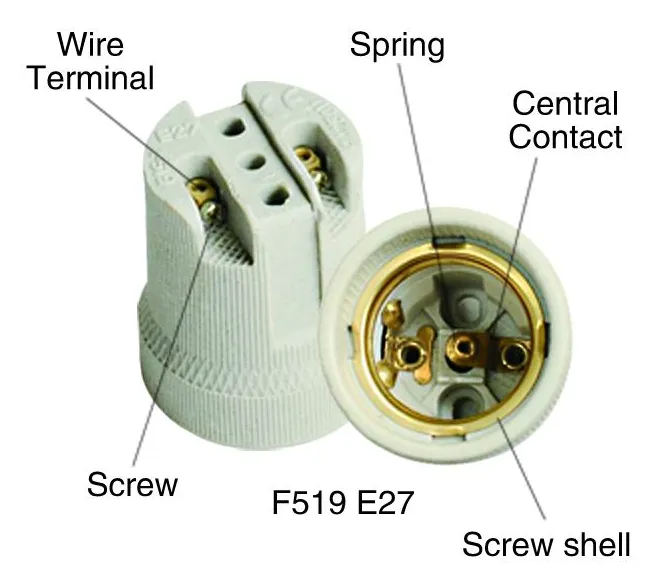
Ideal for High-Wattage and Specialized Bulbs
Porcelain sockets are particularly useful in applications where high-wattage bulbs or specialized lighting is used. For example, halogen bulbs, which are known to produce more heat than standard incandescent or LED bulbs, require sockets that can handle these higher temperatures. Porcelain is often the material of choice in these situations due to its ability to withstand the increased heat load without degrading.
In settings such as industrial plants, stage lighting, or high-output workspaces, porcelain sockets are essential for ensuring safety and performance. Similarly, in environments where spotlights or heat lamps are used, porcelain sockets provide the necessary protection against the intense heat produced by these powerful bulbs.
Porcelain’s capacity to handle high-wattage and heat-intensive bulbs makes it the safest option for applications where traditional materials, like plastic or metal, might fail or pose risks due to heat build-up.
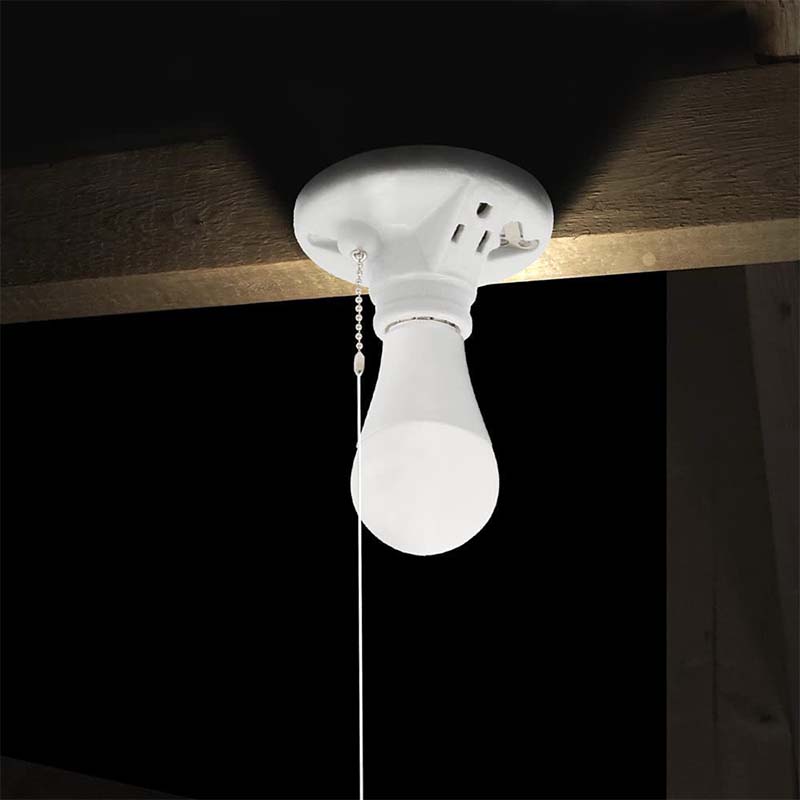
Moisture and Chemical Resistance
Porcelain sockets offer exceptional resistance to moisture and many chemicals, making them ideal for use in challenging environments where these elements are present. This resistance is crucial in locations such as:
- Outdoor lighting: Porcelain sockets can handle exposure to rain, snow, and humidity without corroding or malfunctioning, unlike metal or plastic alternatives.
- Bathrooms and kitchens: In moisture-prone areas, such as near sinks or in bathrooms where steam and humidity are common, porcelain sockets provide a safe and reliable solution that won’t degrade or rust.
- Industrial settings: In environments where chemical exposure is a possibility, such as factories or laboratories, porcelain’s chemical resistance ensures that the socket remains intact and operational, even in harsh conditions.
Thanks to this moisture and chemical resistance, porcelain sockets last longer and are more reliable in areas where other materials might fail. This durability contributes to enhanced safety and reduced maintenance needs in challenging environments.
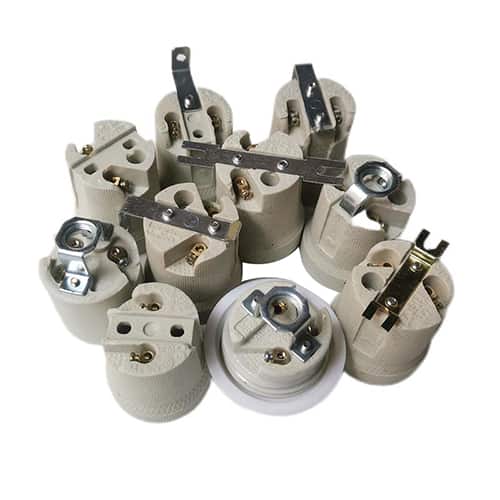
Better for Long-Term Safety
Porcelain sockets provide enhanced safety features compared to other materials, such as plastic or metal, making them a long-term investment in electrical safety. By effectively managing both heat and electricity, porcelain reduces the likelihood of accidents caused by socket failure. Some of the key safety benefits include:
- Fire prevention: Because porcelain can handle high temperatures without melting, deforming, or burning, it significantly lowers the risk of fire caused by overheating sockets.
- Shock prevention: Porcelain’s non-conductive properties ensure that electricity is safely contained within the fixture, reducing the risk of electric shock during handling or use.
- Reduced risk of short circuits: With porcelain’s excellent electrical insulation, the chance of short circuits due to material failure is greatly minimized, leading to a safer overall lighting system.
For homes, businesses, and industrial facilities, the use of porcelain light sockets adds an extra layer of safety that can protect against serious hazards like electrical fires and shock injuries.
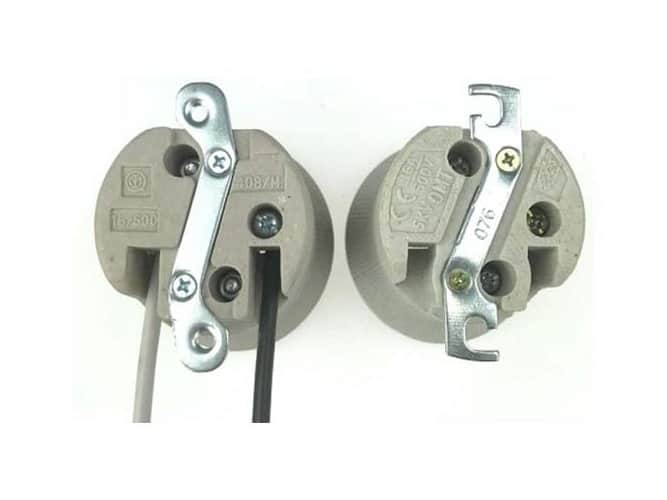
Aesthetic Appeal for Vintage and Industrial Designs
While porcelain sockets are often chosen for their practical benefits, they also have an aesthetic appeal that fits well with certain design trends. For example, porcelain sockets are popular in vintage and industrial-style lighting because of their classic, durable look. Their smooth finish and retro feel make them ideal for exposed bulb designs or fixtures where the socket itself is part of the visual appeal.
In homes or businesses that embrace an industrial chic or vintage-inspired aesthetic, porcelain sockets provide both function and style. They offer a high-quality, polished look that works well in settings where the lighting fixture is a focal point of the room’s design.
This combination of functional durability and stylish appearance makes porcelain sockets a desirable option in both practical and decorative lighting applications.
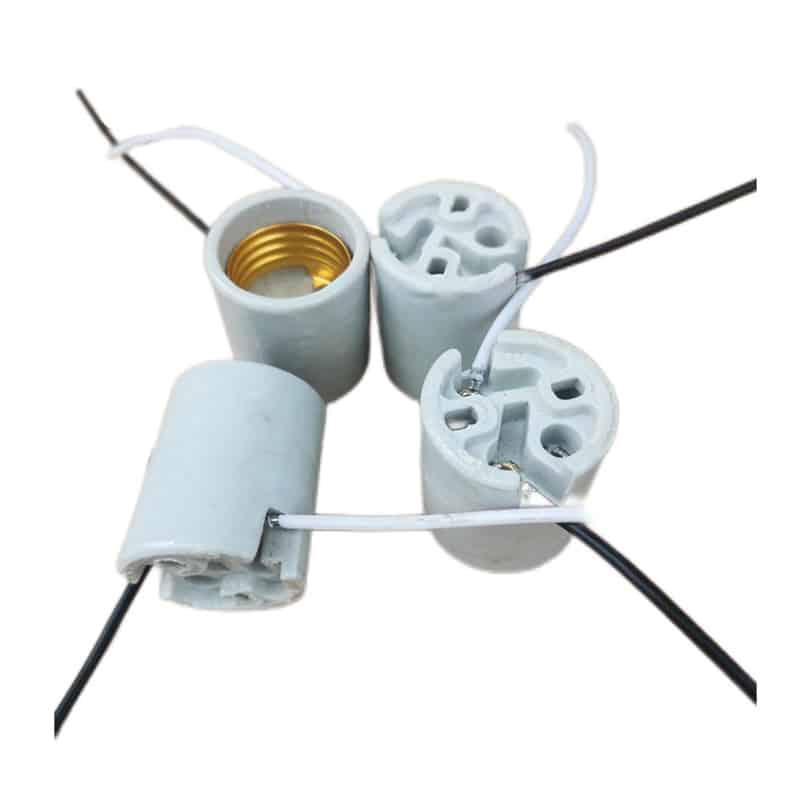
Final Words
Porcelain lamp sockets have a lot of great benefits that make them a good choice for a lot of different lighting situations. They can handle a lot of heat, they’re good for protecting you from electricity, and they last a long time. Whether you’re putting lights in your house, a business, or a factory, you can count on porcelain sockets to work well and not cause you any problems.
Also, porcelain is great for places that are outside or that have a lot of chemicals. They also look really cool in older or industrial-style designs.
When you pick porcelain sockets, you’re getting a lighting system that works great, is safe, and looks cool.

